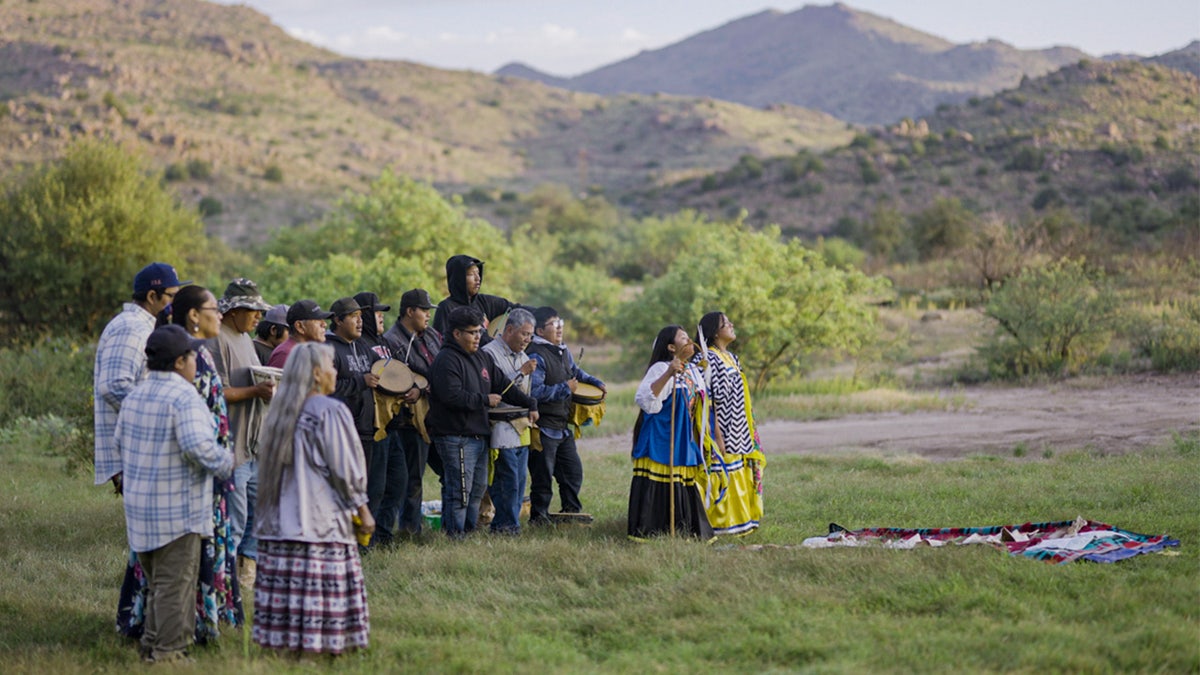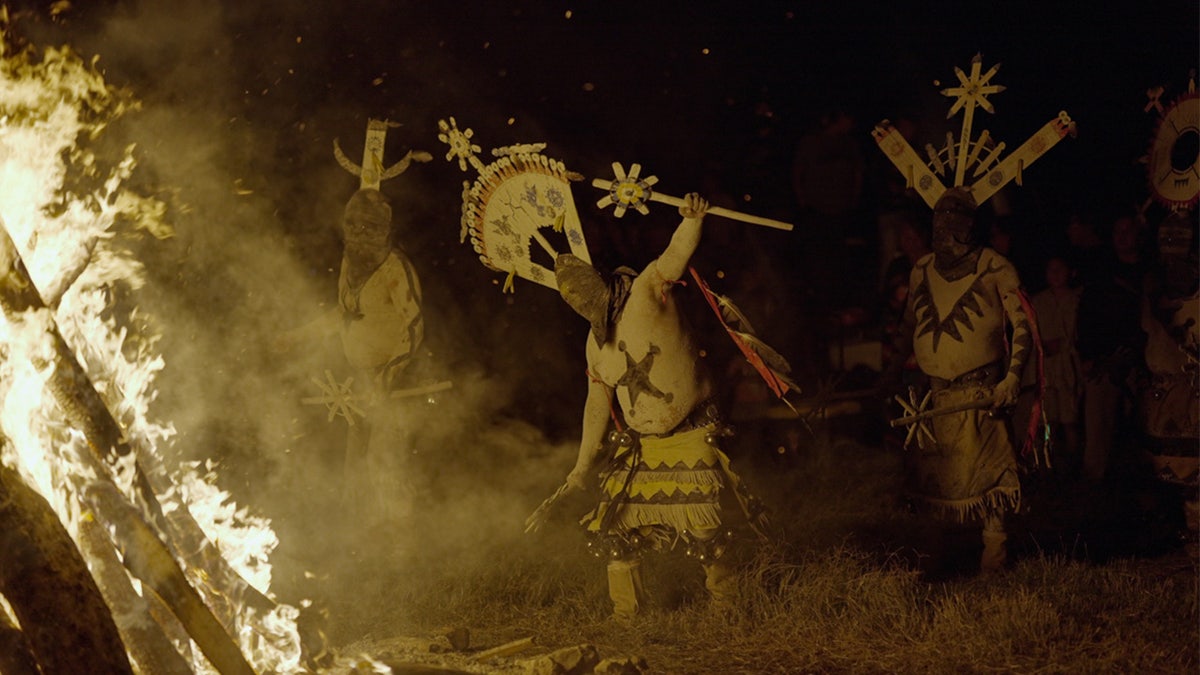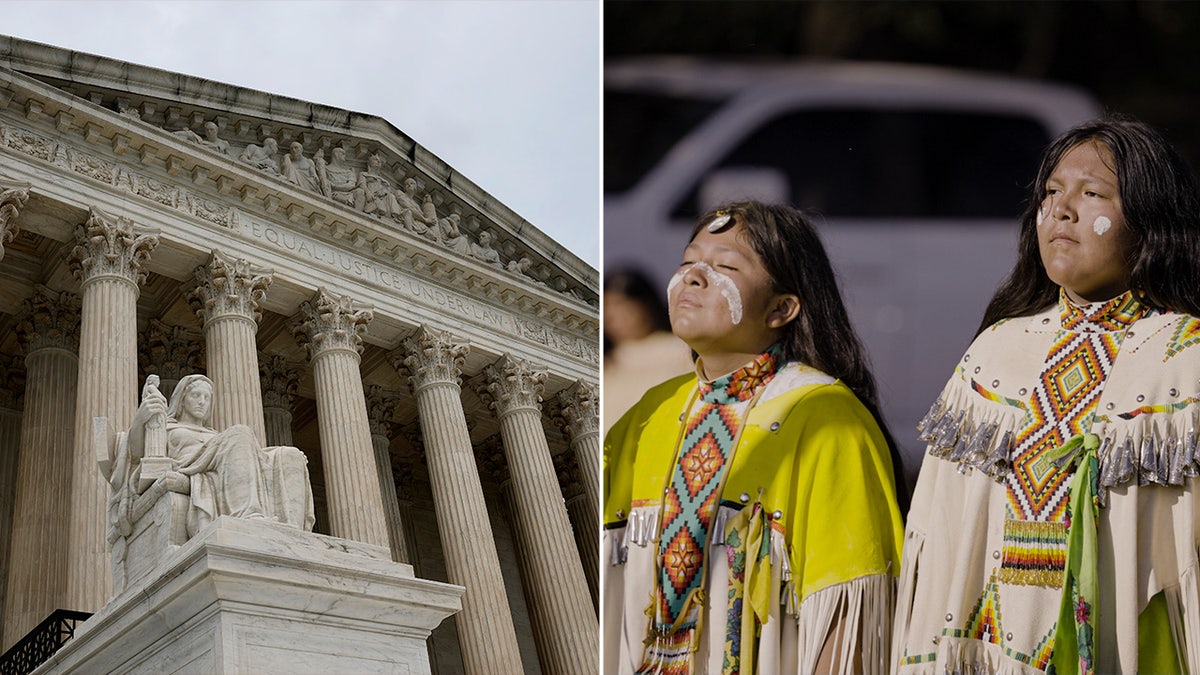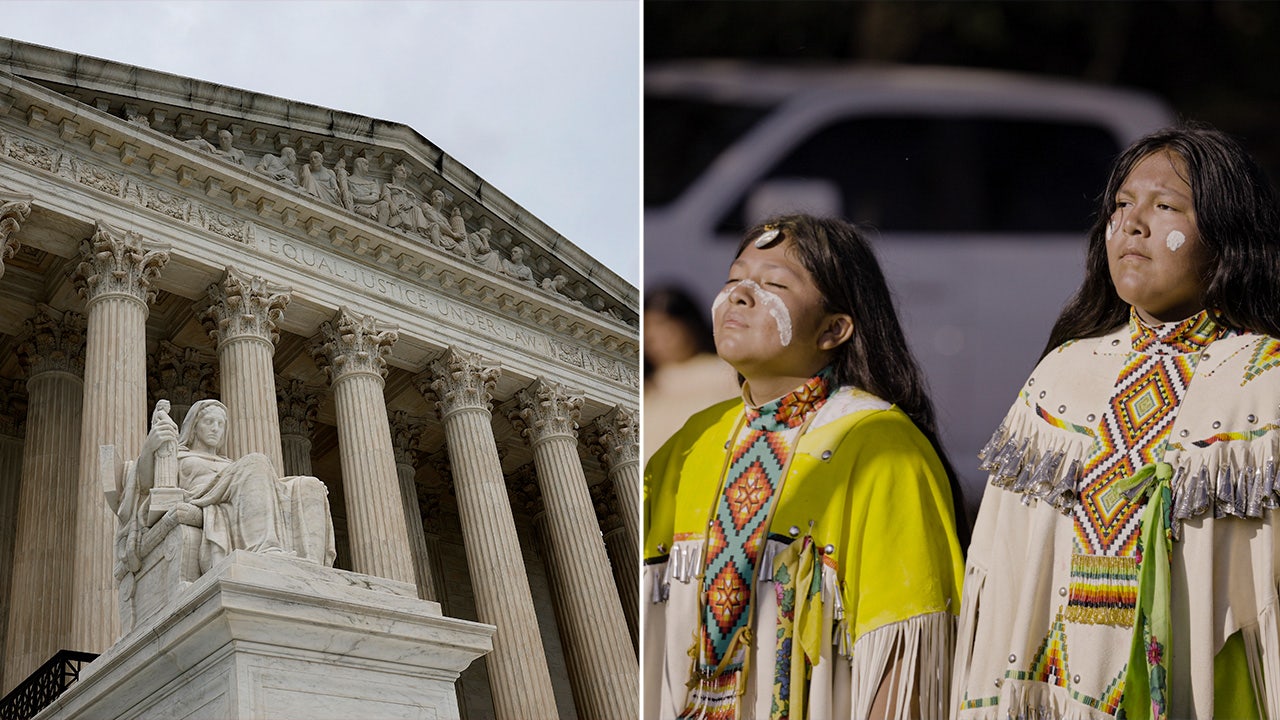[ad_1]
The Apache tribe in Arizona is taking a fight with the federal government and copper producers to the Supreme Court, which they hope will protect what they say is their religious rights to sacred ground.
Apache Stronghold, a nonprofit group representing the tribe’s interests, is fighting to preserve Oak Flat — what the Apaches say is their “direct corridor to the Creator and the locus of sacred ceremonies that cannot take place elsewhere.”
According to the petition filed at the high court, the government “has long protected Apache rituals there.”
“But because copper was discovered beneath Oak Flat, the government decided to transfer the site to Respondent Resolution Copper for a mine that will undisputedly destroy Oak Flat — swallowing it in a massive crater and ending sacred Apache rituals forever.”
WINERY, BREWERY, BAGEL SHOP TEAM UP TO CALL OUT BERKELEY’S PERMISSIVENESS OF HOMELESS ENCAMPMENTS

Apache tribe at sacred site Oak Flat in Arizona. (Credit: Becket Law)
Apache Stronghold argues that the Religious Freedom Restoration Act (RFRA) and the Free Exercise Clause forbids the government to do so and are asking it to reverse a lower court decision.
“In a fractured en banc ruling cobbled together from two separate 6-5 majorities, the Ninth Circuit rejected both claims. Although the court acknowledged that destroying Oak Flat would ‘literally prevent’ the Apaches from engaging in religious exercise, it nevertheless concluded that doing so would not ‘substantially burden’ their religious exercise under RFRA, relying on this Court’s pre-RFRA decision in Lyng v. Northwest Indian Cemetery Protective Association,” the petition states.
“And while the majority acknowledged that singling out Oak Flat for destruction is “plainly not ‘generally applicable,’ it rejected the free-exercise claim ‘for the same reasons’ — no substantial burden,” it continues.
NEW REPORT IDENTIFIES BEST AND WORST US STATES FOR RELIGIOUS LIBERTY

‘The meaning behind it is made so much more when it comes to the spirituality of an individual tied to mother earth and to and to the Creator,’ Noise told Fox News Digital. (Credit: Becket Law)
Oak Flat is a 6.7-square-mile sacred site east of Superior, Arizona. The site includes old-growth oak groves, sacred springs, burial locations and a singular concentration of archaeological sites testifying to its persistent use for the past 1,500 years, the Apache’s argue.
Wendsler Nosie of the Apache Stronghold described it as the Mount Sinai of their faith.
“That’s where our ceremonial ways have been born, the identity of who we are, and the continuing of who we are as people, to how we’re created and how we’re placed onto this earth.” Nosie said in an interview with Fox News Digital. “The meaning behind it is made so much more when it comes to the spirituality of an individual tied to mother earth and to the Creator.”
“One example is the Sunrise Ceremony, a multi-day celebration marking an Apache girl’s entry into womanhood,” the legal filing states.
“To prepare, the girl gathers plants from Oak Flat that contain ‘the spirit of Chi’chil Biłdagoteel.’ As she gathers, she speaks to the spirit of Oak Flat, expressing gratitude for its resources. Ibid. Her godmother dresses her in “the essential tools of . . . becoming a woman,’ and tribal members surround her with singing, dancing, and prayer.”
According to the filing, in 1995, a large copper deposit was discovered 4,500 to 7,000 feet beneath Oak Flat. Hoping to obtain the deposit, two large multinational mining companies, Rio Tinto and BHP, formed a joint venture called Resolution Copper. From 2005 to 2013, congressional supporters of Resolution Copper introduced at least twelve standalone bills to transfer Oak Flat to the company, but each one failed.
SOCIAL MEDIA AND RELIGIOUS FREEDOM RAISED AT GLOBAL SUMMIT AS ‘DOUBLE-EDGED SWORD’

Apache girls at Oak Flat (Credit to Getty Images/Becket Law)
In 2014, Republican Senators John McCain and Jeff Flake attached the land-transfer bill to the National Defense Authorization Act (NDAA), authorizing the transfer of a 2,422-acre parcel including Oak Flat to Resolution Copper in exchange for about 5,344 acres scattered elsewhere.
The bill revokes the presidential orders protecting Oak Flat from mining and directs the Secretary of Agriculture to prepare an environmental impact statement (EIS) for the proposed mine.
Secretary Thomas J. Vilsack published the EIS on Jan. 15, 2021, which said the mine would destroy Oak Flat.
Lawyers for Becket, a nonprofit law firm that defends religious liberties and is representing Apache Stronghold, say the government is trampling their clients’ religious freedoms.
“They effectively say that there’s a carve-out from RFRA for the government’s management of federal land, that if the government makes it impossible for you to exercise your religion, that’s a substantial burden, but that rule doesn’t apply to federal land,” Becket counsel Joe Davis explained in an interview with Fox News Digital.
“But there’s really no basis in the law that Congress wrote for that kind of argument,” he said.
CLICK HERE TO GET THE FOX NEWS APP
“RFRA, on its face, says that it applies to all federal law and the implementation of that law, and it says that the use of land for religious purposes is a religious exercise that the law is designed to protect.” he said.
The Supreme Court could decide to take up the case as soon as October.
“Blasting the birthplace of Apache religion into oblivion would be an egregious violation of our nation’s promise of religious freedom for people of all faiths,” said Luke Goodrich, vice president of Becket. “The Court should uphold its strong record of defending religious freedom by ensuring that the Apaches can continue worshiping at Oak Flat as they have for centuries.”
[ad_2]
Source link


